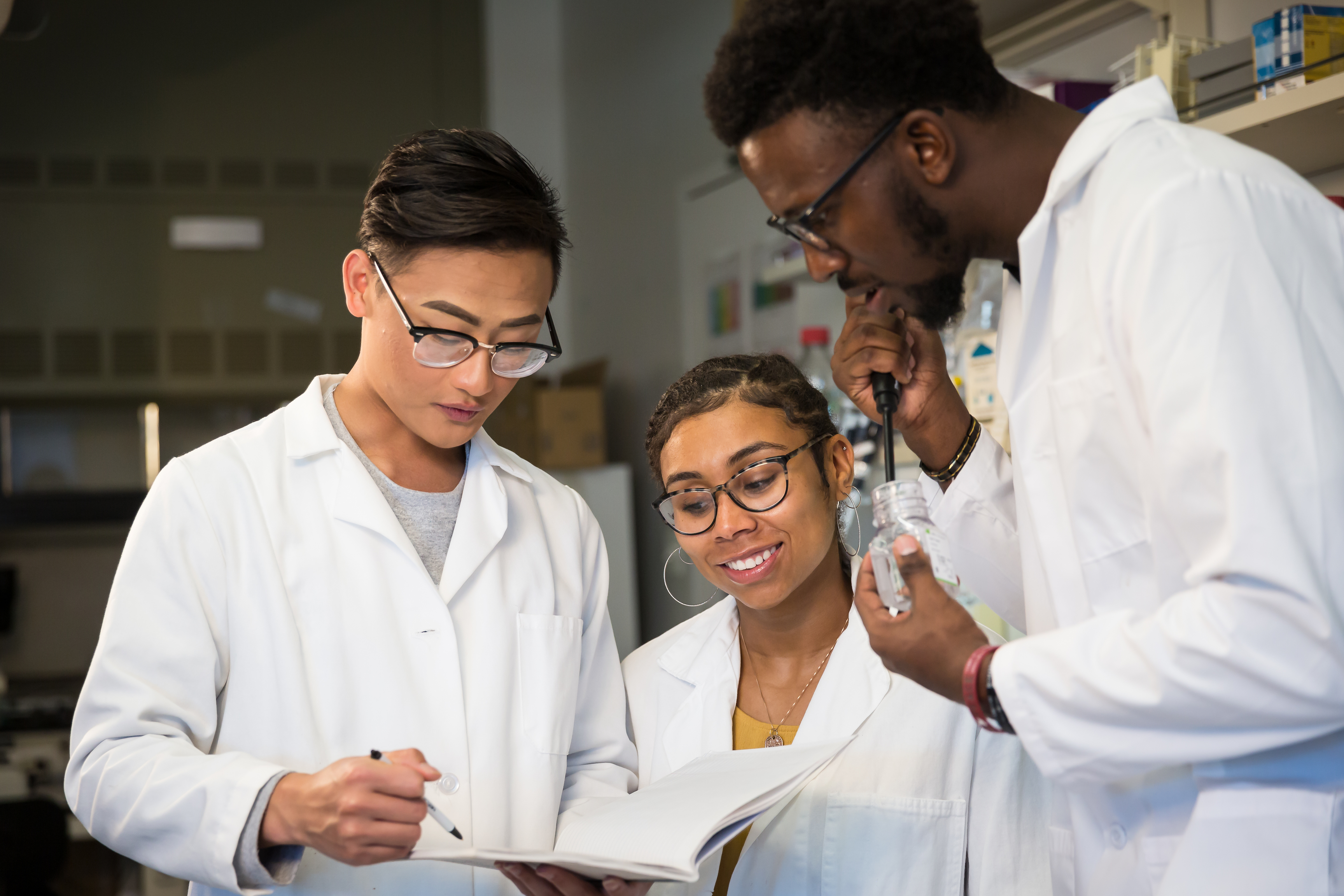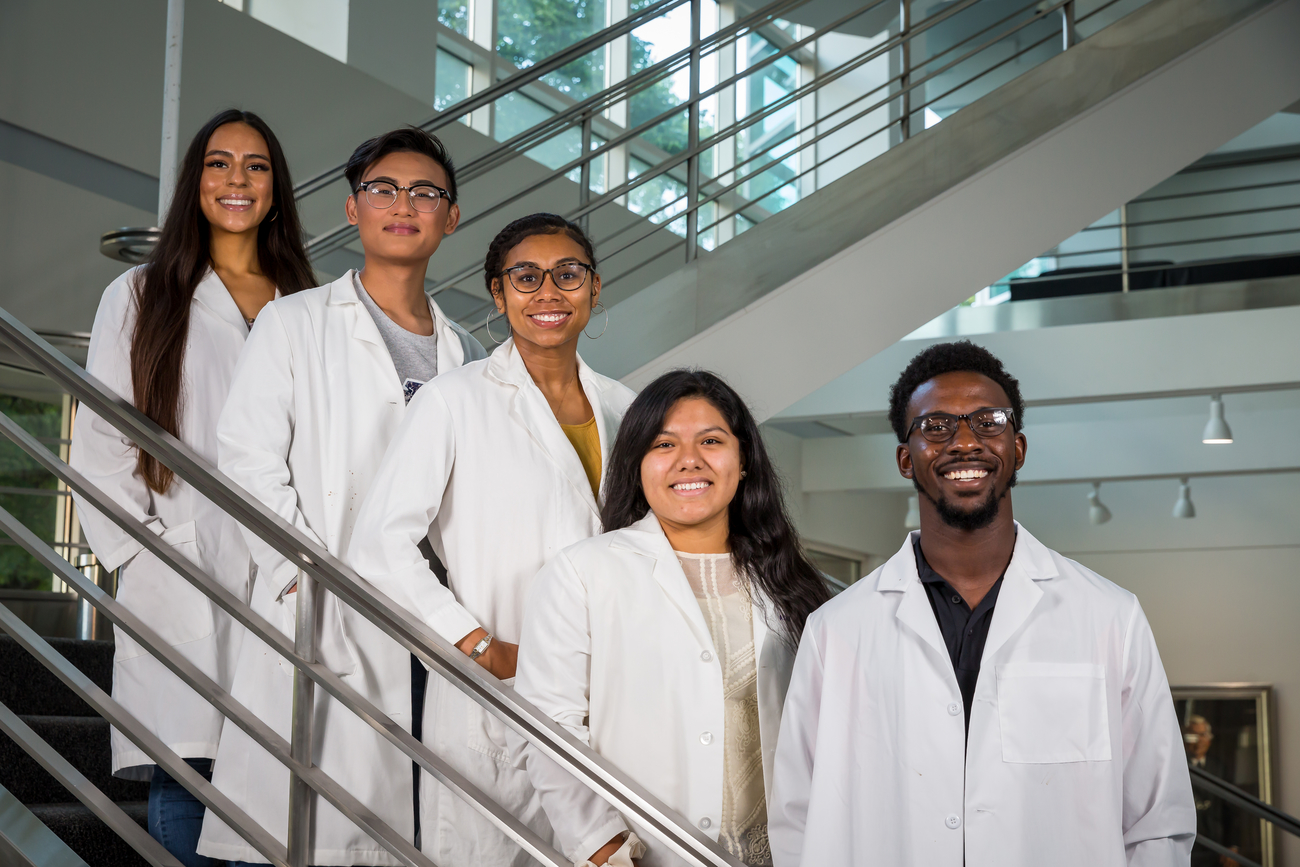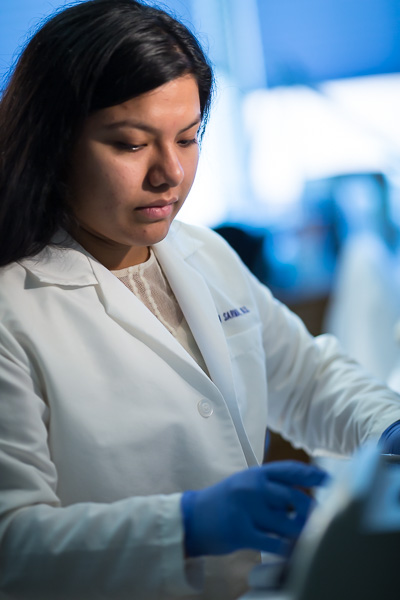

Representation in STEM Matters
The Genomics Summer Research for Minorities (GSRM) internship provides a ten-week summer research program for undergraduate students interested in genomics research, personalized medicine, and biosciences.
“Scientific and medical progress is based on problem-solving and collaborations. By bringing people together from different backgrounds, we see that a problem can be solved in many ways,” said Gloria Slattum, PhD, training manager for the Genomics Summer Research for Minorities (GSRM) internship.
It is this principle that fuels the GSRM internship at the University of Utah, a ten-week summer paid research program for undergraduate students interested in genomics research, personalized medicine and biosciences. The program is supported by the University of Utah Department of Pediatrics and funded by the National Human Genome Research Institute and provides opportunities for underrepresented and disadvantaged minorities students, including women, persons with disabilities, and low-income families.
Underrepresented minorities in the U.S. account for 32.7% of the total population, but only account for 13% of the total number of employees in the science and engineering fields. The program, pioneered by Joseph Yost, PhD, as the principal investigator, has selected four local students and eight students from other states to aid them in their journey in the STEM field. "Genomics is a new and exciting science and this program, supported by the Department of Pediatrics, really encourages these students to succeed in their education and experience the future of medicine," said Yost.
Each student works with their mentors on a specialized research project and gains first-hand experience in bioinformatics, analysis of genomic datasets, and overall professional development. Faculty speakers are invited every week to talk on genomics, ethics in science, and inclusion. At the end of the internship, students are required to give presentations on their research after which they receive valuable feedback from peers and mentors. Students also have something called a ‘Circle of Trust’ where they discuss social issues at the U that impact them.

MEET THE STUDENTS
Read the stories of five of this year’s 12 summer interns.
Bailee Alonso is a student from Texas currently working on mechanisms and diseases in neurodevelopment. Her mentor in college pushed her to go into the medical field and showed her opportunities to cultivate this passion. “It’s like I threw myself in the water… I guess I always thought that I wasn’t supposed to be good in science,” she said. STEM and Medicine were not household terms, nor did she think science was an option for someone of her background. Alonso now aspires to become the first doctor in her family.
Yeng Houa Yang, from St. Paul, Minnesota works on eye development and morphogenesis. Yang has never been hospitalized. His family, he said, feels uncomfortable seeking help from hospitals because of language and cultural barriers. “Representation among healthcare workers really breaks that barrier for communities to be comfortable asking for help,” he said.
Shai Miguel is a Mexican-American, born in Kaysville, Utah. Miguel felt inspired to pursue genomics after her sister was diagnosed with a congenital heart disease. Miguel is currently conducting research on Kabuki syndrome, a congential disorder that affects human neurodevelopment. “There’s a lot of diversity in my lab. It allows for people to come in, and give some of what their experiences have taught them.”

Jordan Swanier, Louisiana, was intrigued by the minority experience it provided. “It definitely was a blessing,” she said. Swanier is doing research she would have never had the opportunity to do elsewhere. She feels like she has a role as a scientist in medicine without having to be a medical doctor. I think that personalized medicine is an awesome wave of the future, and I like that I’m at the forefront of it.” Swanier works on computational and genomic techniques to explore the genetic basis of traits.
Obadiah Kirk says that in Nashville, Tennessee, a lot of people believe they don’t have the capacity to pursue education in STEM. At his college, there were no other minorities in any of his science classes. Through GSRM, Kirk realized that diversity brings more innovation to research, simply from the different narrative that he carries. His research focuses on cardiac recovery and heart failure. “Science goes far beyond a textbook. Diversity is not just important, but even more so necessary.”
Kirk said diversity not only improves science, but also helps in interpersonal relationships, communication skills, understanding and broader knowledge. He felt that the GSRM program elicits so much care and is unparalleled to any other program a minority can take part in. The program’s mentors are dedicated to training the new generation of doctors and scientists in providing personalized medicine to all populations.
“We take great care in supporting our students. We honor our students and provide the best environment for them to grow and learn. We were mentees at some point, it is our duty to become mentors and assist others to become doctors, scientists, scholars and leaders.”
Gloria Slattum